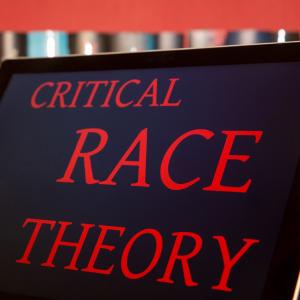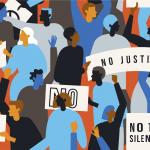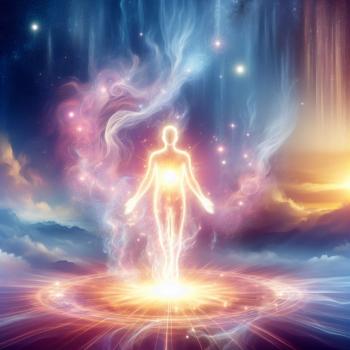Critical Race Theory now pervades almost every corner of American society. It is in schools, government, entertainment, sports and, yes, in churches and seminaries. It is an unavoidable monstrosity, one greatly misunderstood by Christians, and, well, most everybody else. This is, in part, because it is not entirely coherent in itself. Reasons for Critical Theory’s “ineffable” nature will hopefully become transparent below. However, one Christian philosopher, and CRT advocate, inadvertently alludes to why so many fail to comprehend CRT:
This movement contains competing and complementary traditions (e.g., some conditionally accept political liberalism while others completely reject it). Each tradition houses multiple methods and claims. CRT therefore is not a single theory, method, or analytic tool. It’s a diverse, contested, multi-layered movement.
Nathan Cartagena, at https://faithfullymagazine.com/critical-race-theory-christians/ [emphasis added]
If Cartagena is correct, then it makes sense why so many pastors, priests and church leaders are befuddled by critical race theory and its proponents. Even critical race theorists don’t fully understand what it is!
Nevertheless, there are features of Critical Race Theory that Christians, theists, and even atheists who defend the universality of reason should be aware of. Three such core features of CRT are: 1) CRT is not truth-oriented, 2) CRT is inherently and purely political, and 3) CRT is a fundamentally moralistic endeavor. In a later post I will explain how points 2 and 3 are not contradictory. Another feature of CRT that I will also discuss in a later post is how CRT can, and does, act as a replacement religion, something that should concern the religious and non-religious alike (see Bill Maher’s interview with Megyn Kelly, for example). In these next three posts I will try to elucidate more precisely each feature and show how they harm society.
Feature 1: Critical Race Theory is Not Oriented Toward Truth
Critical Race Theory, like any Critical Theory, is a strictly immanent enterprise, meaning on any CRT there is nothing transcendent to “the world.” Anyone who says otherwise, who uses “God” language, has either a) not really grasped the foundational components of critical theory, namely, its metaphysical starting points, or b) is using “God language” for rhetorical and political purposes (usually to deceive, influence emotions, or both). On Critical Theory, then, there is nothing outside of society itself that can act as a metaphysical marker for truth. There is no transcendent Principle, Person or Identity (e.g., no “Nation,” or “Child of God” or “Divine command”) that can act as a shared banner or universal fixed point under which people of various ethnic backgrounds, different genders, or even discrete personal experiences can come together to seek truth, pursue justice, and find common ground to organize their endeavors. On any Critical Theory, society and the individuals who comprise it, simply composes reality itself. Society, not god, is the “author of creation.”
One of the founding fathers of Critical Theory, Max Horkheimer, articulated this core difference between critical theory and traditional theories:
Indeed, Horkheimer criticizes “traditional theory” in light of the rejection of its representational view of knowledge and its nonhistorical subject. Echoing Marx in The German Ideology, Horkheimer insists that for a critical theory the world and subjectivity in all its forms have developed with the life processes of society.
James Bohman, “Critical Theory” in Standford Encylopedia of Philosophy
For Horkheimer the “world,” social reality, develops as society progresses. This is a radically different view of truth and knowledge than almost all classical philosophy and classic Christian theology. In fact, it is here that the salient historical battle for Western culture is being fought, regardless of who recognizes it. The question lingers for those who see the problem: “can we return to the traditions of Plato and Augustine, Aristotle and Aquinas, or must capitulate to Marx and his successors?” Unfortunately, there is still no answer forthcoming.
Early critical philosophers like Horkheimer tried to avoid this “skeptical predicament,” (Bohman,“Critical Theory”) which would make truth claims utterly relative to the whims of any given cultural moment. However, ultimately, the sociological naturalism these thinkers challenged, a methodological naturalism that makes all “true” knowledge a mere product of historically situated social groups, won out. As such, common parlance today in places like Canada, Europe and the United States speaks of knowledge as a “construct,” not a discovery. And where “knowledge” become a production of the mind, or a group of minds, wisdom is non-existent.
These first-wave critical theorists wanted philosophy to organize and prioritize social data (Bohman, “Critical Theory”). They were hopeful that philosophy could act as the gatekeeper of the cumulative acquisition of knowledge gained over time. Regardless, a more radical approach to social doctrine rejected this earlier version of critical theory as critical philosophy, opting instead to make politics the organizing field of “social data.” Today’s critical race theorist passionately descries almost all of past (Western) knowledge as essentially “white supremacist,” an idea that would have been foreign to the predominantly German thinkers of the Frankfurt School. Of course, today’s critical race theorists operate in a post-Vietnam, post-Sexual Revolution culture. Politics, not philosophy, is the new gatekeeper of knowledge (or so they claim). The line between academic and activist has been seriously blurred, and, as I have written elsewhere, the knew purveyor of truth is the “activist with ripped jeans, dyed hair, piercings, and bandana.”
Popular critical race theory now claims that any knowledge, let alone wisdom, which has emerged since the Enlightenment, and probably earlier, is indelibly infected with racism and, as such, worthy of complete negation. Knowledge birthed out of the Western European context, to include that of the early critical theorists themselves, is tainted with racial corruption and must be excised from culture. This may smack of one massive genetic fallacy, and, in truth, is it just that. However, on a CRT view, logic itself is often claimed to be a construct of white culture.
Critical Race Theory is deeply Marxist in this regard, regardless of what defenders of CRT might say in trying to distance themselves from the “hell-bound” German. It is Marxist since truth, according to any Critical Theory, is entirely relative to historical conditions and the societies living under those conditions. Moreover, CRT is as close to a philosophy actualized as we have seen since Lenin. While current Critical Race Theory may reject other aspects of “vulgar” Marxism, e.g., its purely materialistic dialectic, historicism with regard to truth is fundamental. In a CRT world, Archimedes’ “Eureka” is no longer translated as “I have found it!,” but rather “I have invented it!”

The Fallout of CRT’s Socialized Knowledge
Theologically speaking this view of socialized knowledge has implications. On this view, the Bible, or any historical text really, has little application for us today. Even if biblical “truths,” or constitutional ones, might have been applicable to the “life processes” of the ancient or early modern cultures that produced them, there is no reason to think that is now the case. Material and social conditions have changed and, therefore, so has the reality in which we now live. The idea of “universality” (across space or time) is itself, again, a mere product of localized social groups: white European ones according to most CRT advocates.
Further, Critical Race Theory, like Gender Theory or Feminist Theory, does not limit its criticism to just religious claims. It also brings scientific claims under scrutiny, making them relative to historical, cultural and social conditions. On CRT, there are no shared principles of right reasoning– no logic that acts, or even could act, as a universally applicable standard or norm by which we can grasp truth about the world. Instead there are “logic(s)” that are relative to discrete social groups. Each of these “logic(s)” is perhaps only partly compatible with some other or perhaps not compatible at all. What decides whose “logic” wins out is force, here, political force.
And so today we even see highly objective disciplines like math come under the all-seeing eye of Critical Race Theory. Math, once considered a sign of the Divine Mind itself, is now relative to society and its racial subgroups. A statement by the Mathematical Association of America last October made it quite clear how under CRT’s acid lens, the ontological status of math has been drastically reduced:
It is time for all members of our profession to acknowledge that mathematics is created by humans and therefore inherently carries human biases. Until this occurs, our community and our students cannot reach full potential. Reaching this potential in mathematics relies upon the academy and higher education engaging in critical, challenging, sometimes uncomfortable conversations about the detrimental effects of race and racism on our community. The time is now to move mathematics and education forward in pursuit of justice.
This is a far cry from Pythagoras’ divine numbers indeed!
Embracing Critical Race Theory leads to a stark anti-realism about scientific proclamations. On CRT, so-called “firm” conclusions in the hard sciences (chemistry, biology, geology, physics, etc.) are inventions of the scientist or the scientific community doing the research. That “scientific” invention will itself be based primarily on the social identity that the scientist, or majority of scientists, ascribes to or sees themselves as coming from.
One should say, for a culture ever more given over to finding its security in medical technologies, this should be very disconcerting to those who want to “follow the science.” On CRT one cannot simply follow “the science.” There is no such thing. On CRT, cone can only follow scientists, preferably ones whose social identities match one’s own. In the next post I will look more specifically at how this approach makes all things, even science, political.
In sum, Critical Race Theory is not a truth-oriented project, rather it is a “truth” constructing one. However, the construction of knowledge is not something that originates in the intellect. As with any creative act, it emerges foremost from the will, more particularly from the realm of desires. This leads to the next core feature of Critical Race Theory: its inherently political nature.














